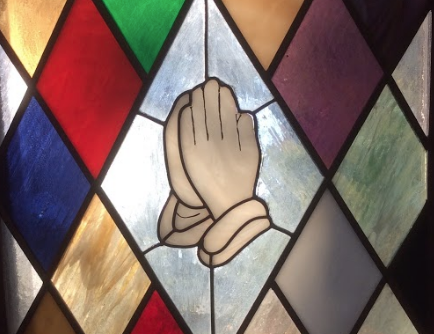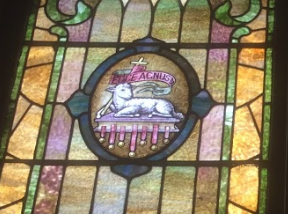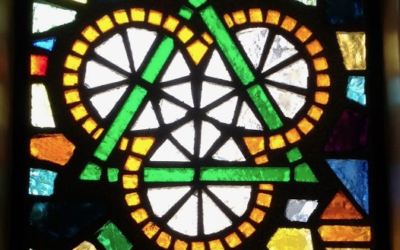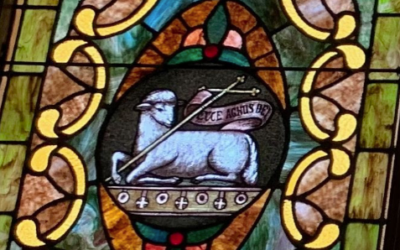Thanksgiving
Watch the service

Read the sermon
Thank Me With Dignity
How can I thank you? In the Old Testament there were many times and ways that the Lord rescued his people. But there was one event that rose above them all. That event was when the Lord rescued his people from Egypt. In the beginning of Deuteronomy the Lord reminded his people what being in Egypt was like. He told them that being in Egypt was like being in an “iron-smelting furnace.”1 Living in Egypt was like being in hell on earth. But the Lord rescued them. And in that joy and amazement he knew they would have a question: How can I thank you ? And all throughout this book of Deuteronomy, he gives examples. But these examples teach an attitude. The Lord was telling his people, “Thank me with dignity.” And in these words we see how this idea of dignity is fleshed out. We read: “19 When you are harvesting in your field and you overlook a sheaf, do not go back to get it. Leave it for the foreigner, the fatherless and the widow, so that the Lord your God may bless you in all the work of your hands. 20 When you beat the olives from your trees, do not go over the branches a second time. Leave what remains for the foreigner, the fatherless and the widow. 21 When you harvest the grapes in your vineyard, do not go over the vines again. Leave what remains for the foreigner, the fatherless and the widow. 22 Remember that you were slaves in Egypt. That is why I command you to do this.” (Deut. 24:19–22 NIV11-GKE)
In joy and amazement the Hebrews were asking how they could thank their Lord. And he answers by saying, “Do not remember.” And it’s fascinating to see how the Lord fleshes out this idea. When they are out there harvesting in the fields and a sheaf falls to the ground behind you, don’t go after it. When you’re shaking out the olive tree and there’s some of those olives that won’t seem to come down, leave them there. Leave them there as an act of trust that I will take care of you. But even more than that, leave it there as an act of dignity.
How so? If you leave that sheaf or that tree behind, then the foreigner, or fatherless person can follow up behind. And they can work. They can toil. They then will not need to beg and grovel. You will give them the ability to thank the Lord, but not just with their hearts. They will also be able to thank their Lord with their hands.
Notice how that treated that foreigner or fatherless person with dignity. They didn’t have to grovel or beg. They could work with their own hands to provide for themselves and others. And if you want an example of this, when you get home, read the book of Ruth. This treated them with dignity. And it trained them to thank their Lord in a way that he chose and desired. But there’s more. The Lord also invited them to thank him in another way: “4 Do not muzzle an ox while it is treading out the grain. 12 When you have finished setting aside a tenth of all your produce in the third year, the year of the tithe, you shall give it to the Levite, the foreigner, the fatherless and the widow, so that they may eat in your towns and be satisfied.” (Deut. 25:4; 26:12 NIV11-GKE)
When the people were rescued from that hell on earth in Egypt, they would ask how they could thank their Lord. And he invited them to not remember the sheaves and olives they left behind. But notice here the emphasis is just the opposite. He tells them to remember the widow, the Levite, the foreigner, the fatherless. What is it that all these groups of people have in common? They were vulnerable. So, on the one hands, where they were able to get out and work in the fields, they were given that gift. But that would not cover all their needs and expenses. And the Lord went to his people, saying, “if you want to thank me, treat these people with dignity.”
And that’s even more fascinating when we see who is in that group. We might understand how the foreigner and the fatherless are in that group. But what about the Levites? Why are they in that list? It was their role to give their fulltime work to the ministry of the word. And because of that they had no land of their own. So the Lord expected them to care for their called workers. And the illustration he used to teach this was the ox. He tells them, “Do not muzzle an ox while it is treading out the grain.” (Deut. 25:4 NIV11-GKE) So you have to picture this. It’s harvest time. The ox is walking over the stalks of grain on the threshing floor to separate the stalks from the heads of grain. And the smart ox-owner lets him eat the grain while he eats. That will keep him healthy and motivated. In the NT, Paul asks the question, “is the main focus of that passage the oxen?”2 No, it’s the ministers of the gospel. They are vulnerable. They put in full time work. And, as Jesus says, they are worthy of their wages.3
And still today, pastors and teachers, like foreigners and the fatherless, are vulnerable. I’ve been to many budget meetings over the years, both for pastors and for teachers. And there’s always the temptation to not treat the called worker with dignity. There’s the temptation within the called worker to not speak up about his or her wages. There’s the temptation for those on the school board or the church council to not pay the teachers or pastors a decent wage. And, my dear friends in Christ, I want to be open and plain and clear with you. I can say with all truth and sincerity that here at Immanuel and on our school board, our called workers are considered to be the gifts that they are. And there is work being done to pay them within the Synod guidlines. But there is and until Judgment Day comes, there will always be the temptation to not value the vulnerable. There will be the temptation to deny dignity to those in need.
And so, just like these ancient people in Moses’ day, it is good for us to turn back to these words. For, in his amazing mercy, our Lord did not rescue us from the fiery furnace of Egypt. Instead, he rescued us from the fiery furnace of hell. And how he does this is amazing. For, as we came into this world, we had no dignity. We, along with Adam and Eve threw that away. We come into this world hating God and running away from him. But, in an amazing way, our good and gracious Lord treats us with dignity—his own dignity. Martin Luther once said: “God’s love does not find, but creates, that which is pleasing to it.”4 Jesus died for our sins to pay for our lack of dignity. Jesus then gave his dignity to us in those waters of baptism. Now, instead of being a child of hell, we are a child of God and heir of heaven.
But our good and gracious Lord does even more. Yes, he treats us with dignity that he did not find, but instead, creates in us. But then he trains us in that dignity. Think of the word we sing in our hymn:
Who from our mothers’ arms has blessed us on our way
with countless gifts of love and still is ours today
I remember when I was in high school. And my mom made me be the one responsible for getting dinner together. And I was angry that I had to do this at all. Then I was angry that I didn’t know how to do this. So, with such patience, she showed me. She took a chicken out of the refrigerator. And I had to quarter it. Then I had to put the pieces into the sheet dish. Then I had to season it and bake it. And how I hated doing it. But I did it. And then, later on, though I’d never admit this to my mom for years after, I was thankful. There was this dignity in being able to do this project from beginning to end for my family by myself. There was this dignity in being able to thank my good and gracious Lord in a way that he would like to be thanked. And it didn’t come from watching TV or even reading a book. It came from a patient and caring mom.
So our good and gracious Lord treats us with a dignity that did not come from us. And then he trains us in that dignity. Let us then thank him. Let us thank him by treating people with dignity by letting them thank their Lord with their own hands and hearts. Let us thank him by valuing the vulnerable. Amen.
1 ”מִכּ֥וּר הַבַּרְזֶ֖ל מִמִּצְרָ֑יִם“ (Deut. 4:20 HMT-W4)
2 “ⲙⲏⲧⲱⲛⲃⲟⲱⲛⲙⲉⲗⲉⲓⲧⲱⲑ̅ⲱ̅” (1 Cor. 9:9 GNT-ALEX)
3 Luke 10:7
4 The Roots of Reform, ed. Timothy J. Wengert, vol. 1 of The Annotated Luther. Accordance electronic ed. (Minneapolis: Augsburg Fortress, 2015), 85.



